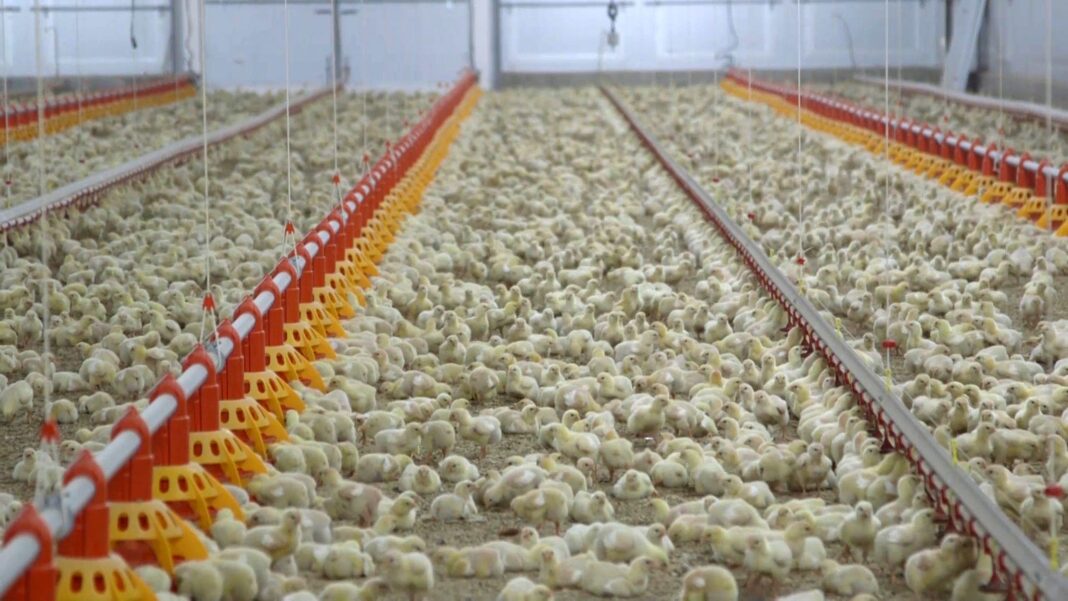The government will as part of the Planting for Food and Jobs initiative in 2024 produce 65,000 metric tons (MT) of broilers.
This is expected to help address concerns about the heavy reliance on poultry imports.
Mr Ken Ofori-Attah, the Minister for Finance, said this on Wednesday when he delivered the 2024 “Nkunim” Budget Statement on the floor of Parliament in Accra.
“In seeking to change course in the Agriculture sector, the President in August,
2023 launched the Planting for Food and Jobs (PfJ) II. The PfJ II has a special focus on poultry to address the heavy reliance on imports.
“Accordingly,15 anchor farmers and 500 out-growers in five regions, Ashanti, Greater Accra, Bono, Bono East and Eastern regions will be selected to produce 65,000 MT of broilers in 2024,” he said.
Mr OforiAtta said the significant shortfall between demand and domestic production
of vegetables required urgent action, especially considering the impact of the
recent supply disruptions from the Sahelian region.
He said engagements with Onion Producers and Importers prior to the 2024 Budget presentation revealed the importance of developing an ‘Onion Index’ to track the
production, distribution, and consumption of the commodity.
That, the Finance Minister said was necessary because in 2022, demand for onions was 314,337 MT, while the local production was 178,492 MT, adding that, the national demand for tomatoes in 2022 was 1,257,348 MT, while local production stood at 468,280 MT.
He said those were two prominent vegetables in the Ghanaian household, therefore, PfJ sought to improve supply and utilisation of high-quality inputs, facilitate credit guarantees for aggregators to procure improved seeds, fertilizers, as well as pesticides and supply them on zero-interest credit terms to vegetable farmers in the immediate and short-term.
The Minister noted that the condition and capacity of existing warehouses in the country would be improved to enhance the condition and capacity in storing bumper harvest and maintaining price stability.
Mr Ofori-Atta said the Growth Strategy the government was embarking on also aimed to boost fish production, mostly through increased focus on oceanic and inland earthen ponds.
“The goal is to support fishermen, fish farmers, and fish processors in our coastal regions. The
interventions planned in this sub-sector include direct support for production, distribution, and storage of fish as well as producing and supplying over 110,700,000 liters of premix fuel using gasoline and condensate.”
GNA
Budget Statement: Government to produce 65,000 metric tons of broilers in 2024



